Dive Deep: 20+ Amazing Water Facts You Won't Believe!💧
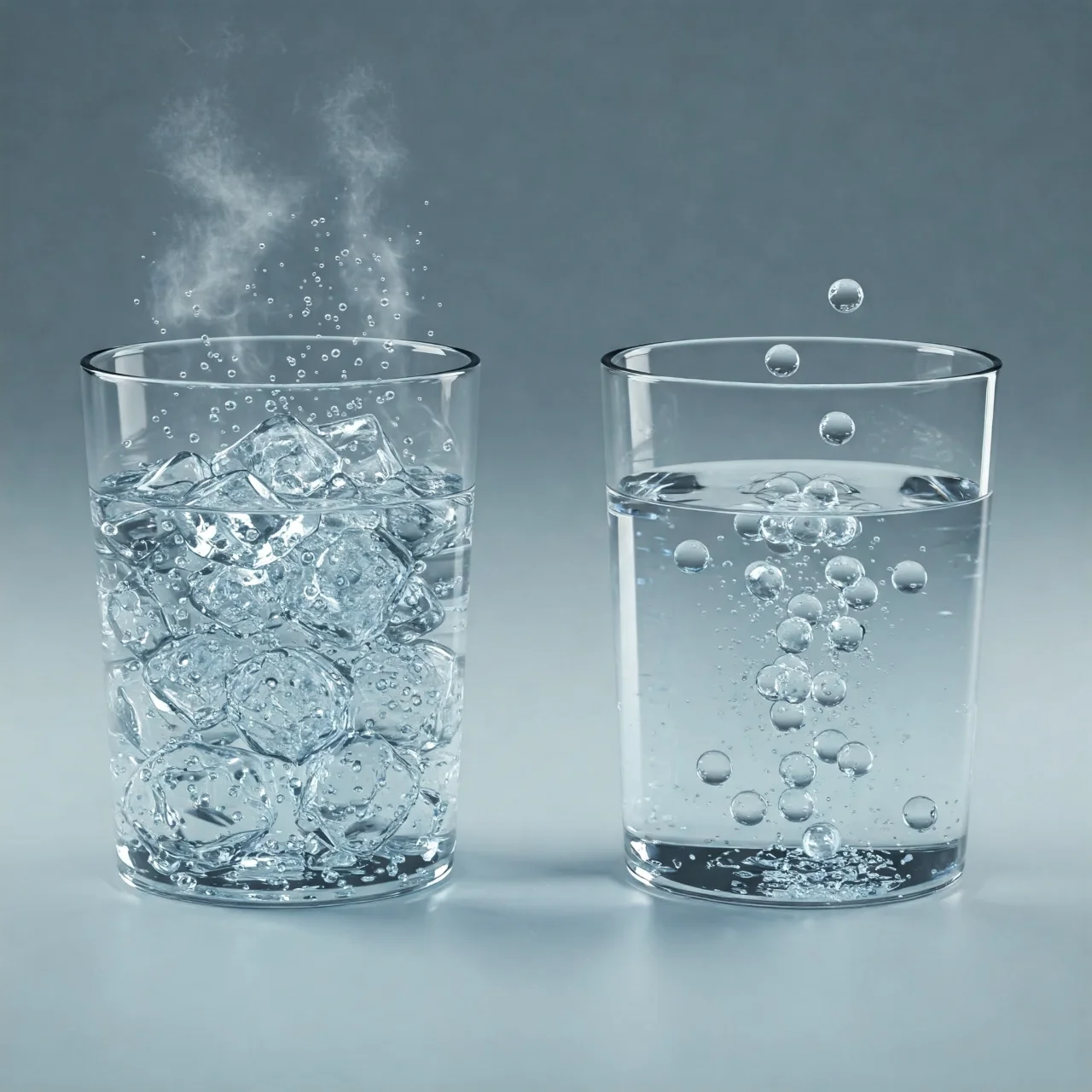
Uncover the most fascinating and lesser-known water facts in 2025! From bizarre behaviors to life-saving properties, explore H2O like never before.
The Unassuming Wonder – Water!
Water, it's everywhere and we use it every day without a second thought. But beneath its ordinary facade lies a world of extraordinary facts waiting to be discovered. Prepare to have your perception of H2O transformed as we plunge into a list of mind-blowing water facts that will leave you both amazed and deeply appreciative of this life-giving substance. Get ready to dive deep into the world of water!
1. Water Can Exist in Three States Simultaneously… Sometimes Four!
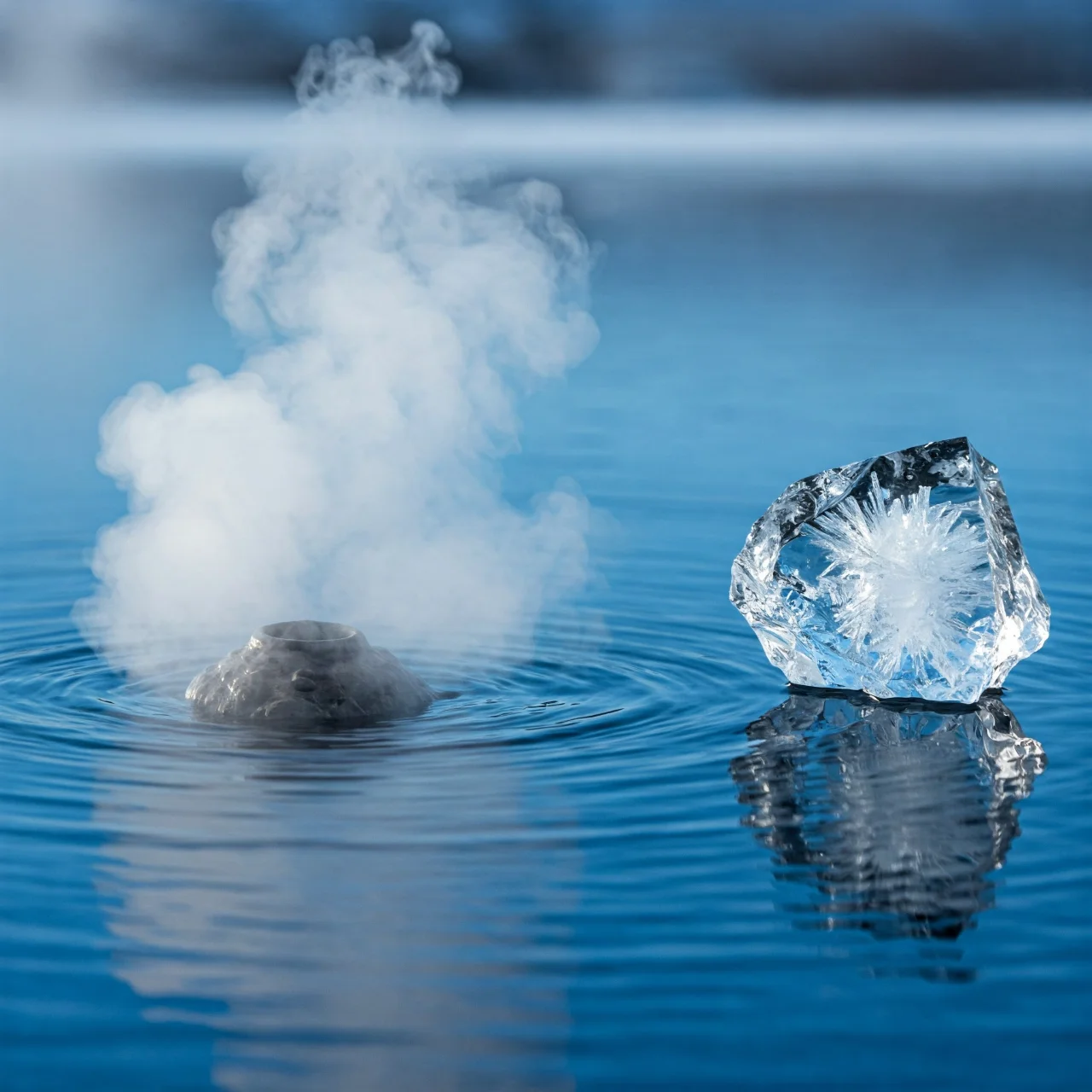
We all know water can be a solid (ice), a liquid, or a gas (steam). But did you know it can exist in all three states at the same time? This phenomenon, known as the 'triple point,' occurs at a specific temperature (0.01 degrees Celsius) and pressure (0.006 atmospheres). Even more bizarrely, scientists have discovered evidence of a fourth phase of water, called 'superionic water,' existing under incredibly high pressure, like deep within Uranus and Neptune. In this phase, water molecules break down, and oxygen ions crystallize while hydrogen ions move freely within the oxygen lattice. [Source: [Link to NASA Article about Superionic Water](https://science.nasa.gov/solar-system/uranus/facts/)]
2. Hot Water Can Freeze Faster Than Cold Water: The Mpemba Effect
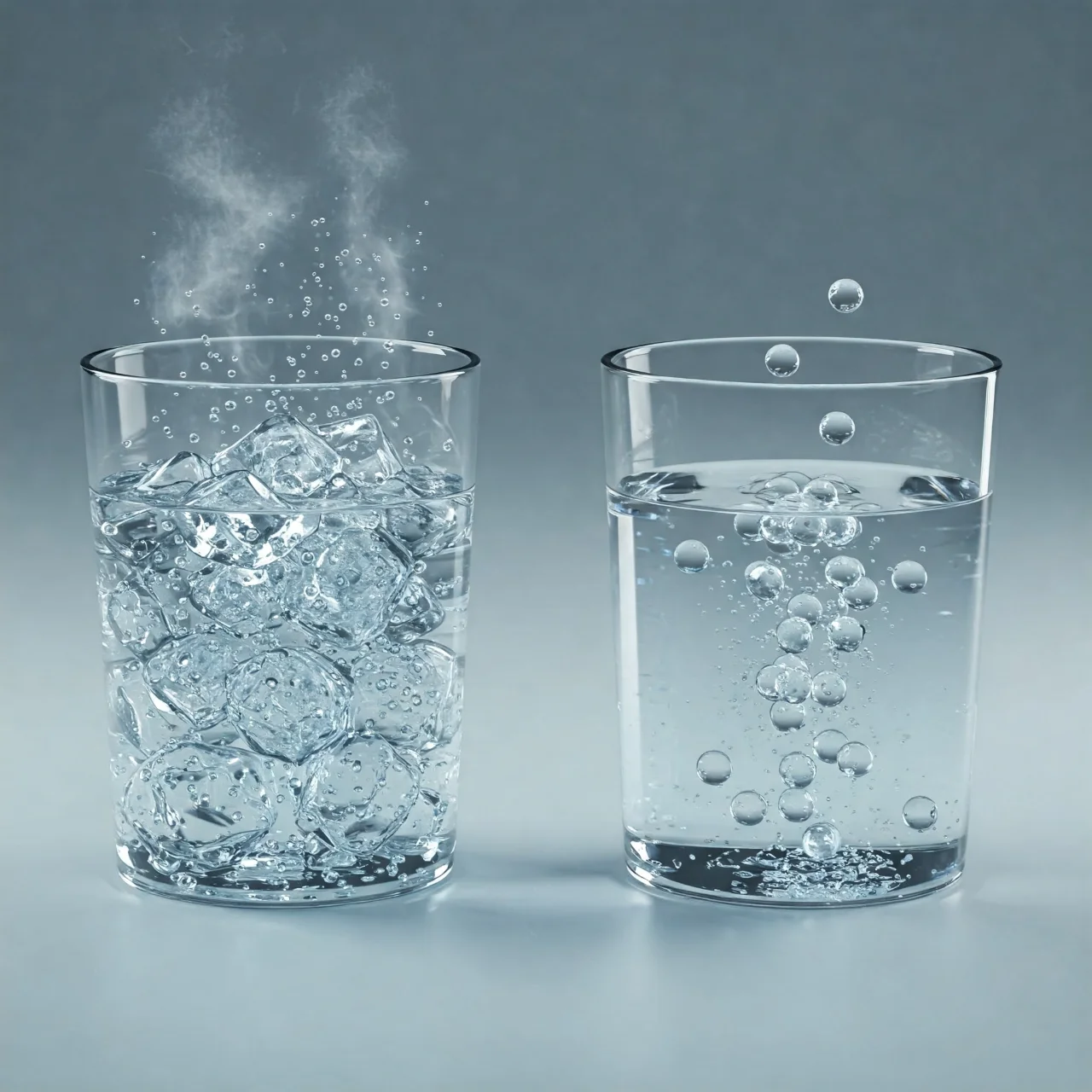
Counterintuitive, right? The Mpemba effect, named after Tanzanian student Erasto Mpemba, describes the phenomenon where hotter water can freeze faster than colder water under certain conditions. While the exact reasons are still debated, theories involve factors like evaporation, convection currents, and the unique properties of hydrogen bonds in water. This quirky behavior continues to puzzle and fascinate scientists. [Source: [Link to Royal Society of Chemistry Article on Mpemba Effect](https://www.rsc.org/education/header-secondary/chemistry-world/mpemba-effect/)]
3. There's More Water in the Sky Than in All the Rivers Combined
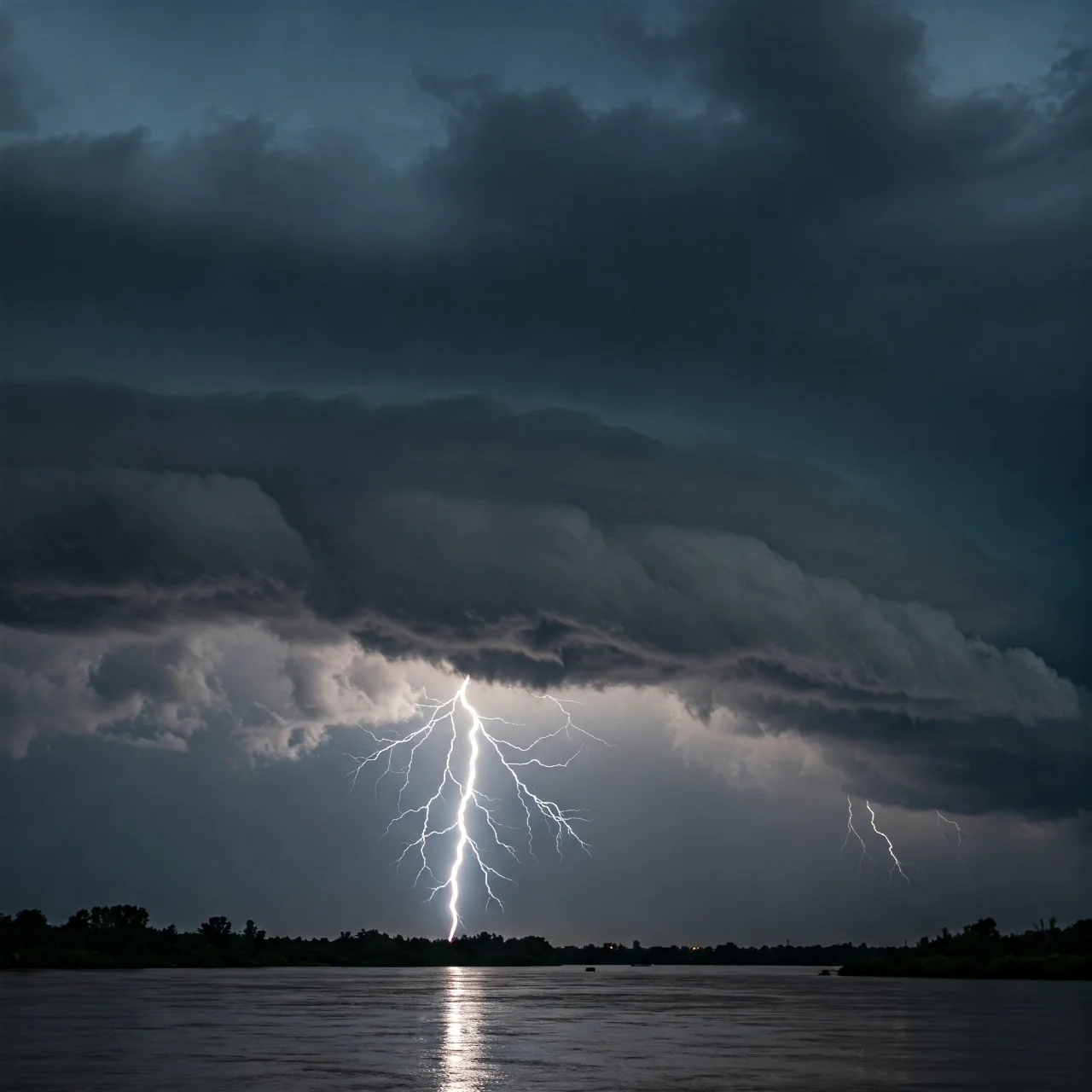
Think of all the rivers on Earth – mighty Amazon, Nile, Ganges… impressive, aren't they? Yet, the atmosphere holds even more freshwater than all of these rivers combined! This atmospheric water, mainly in the form of water vapor, constantly circulates around the globe, playing a crucial role in weather patterns and climate regulation. This fact underscores the vastness of the water cycle and the importance of atmospheric moisture. [Source: [Link to USGS Water Science School - Water in the Atmosphere](https://www.usgs.gov/special-topics/water-science-school/science/water-atmosphere)]
4. Earth is Called the Blue Planet for a Reason, But Water is Actually Colorless
From space, Earth appears strikingly blue, thanks to its abundant water. However, pure water itself is colorless. The blue hue we perceive in large bodies of water is due to the water molecules absorbing longer wavelengths of light (like red and yellow) and scattering the shorter, blue wavelengths back to our eyes. So, the next time you admire a blue lake, remember it's more of an optical illusion than the actual color of water! [Source: [Link to National Ocean Service - Why is the ocean blue?](https://oceanservice.noaa.gov/facts/oceanblue.html)]
5. Your Body is an Aquatic Ecosystem: You're Mostly Water!
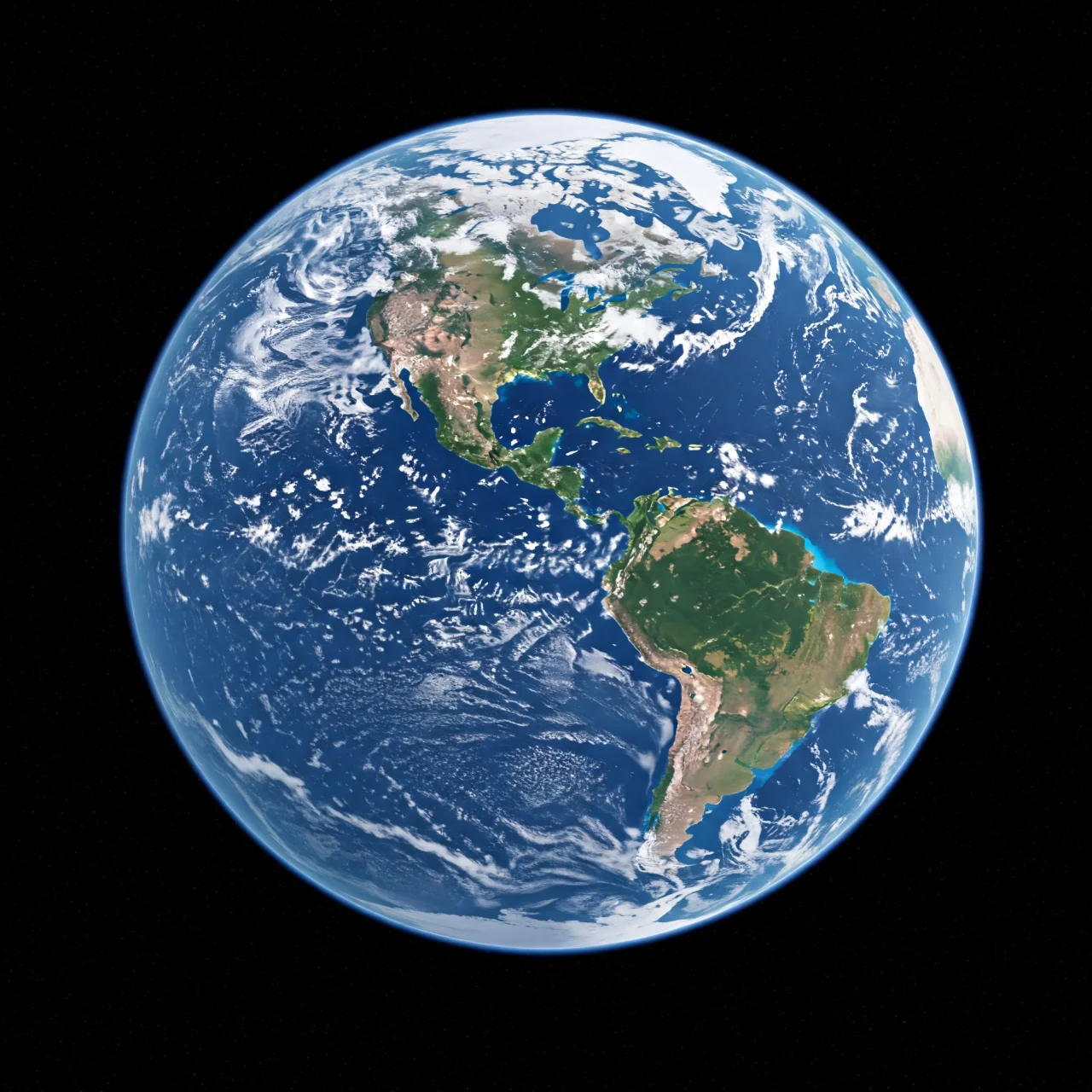
The human body is an incredible machine, and water is its primary component. On average, about 55% to 78% of an adult human body is water, varying with age and body composition. Water is essential for virtually every bodily function, from regulating temperature and transporting nutrients to lubricating joints and flushing out waste. Even slight dehydration can impact cognitive function and physical performance, highlighting water's vital role in keeping us alive and thriving. [Source: [Link to Mayo Clinic Article on Water: How much should you drink every day?](https://www.mayoclinic.org/healthy-lifestyle/nutrition-and-healthy-eating/in-depth/water/art-20044256)]
6. Water Can Boil and Freeze at the Same Time (Sort Of)
Another mind-bending water quirk! While it's not boiling and freezing simultaneously in the traditional sense, a phenomenon called 'sublimation' allows ice to turn directly into water vapor (a gaseous state) without passing through the liquid phase. This happens at very low pressures and temperatures. Conversely, under specific lab conditions, scientists can achieve a 'supercooled' state where liquid water exists below its normal freezing point, and if disturbed, it can rapidly 'boil' into ice crystals. [Source: [Link to PennState Science - Sublimation and Deposition](https://www.e-education.psu.edu/meteo3/l4_p3.html)]
7. The 'Water Footprint' of Your Food is Surprisingly Huge
Ever considered the water it takes to produce your food? The 'water footprint' measures the total volume of freshwater used to produce goods and services. For example, producing one kilogram of beef can require approximately 15,000 liters of water! Even seemingly less water-intensive foods like almonds and chocolate have significant water footprints. Understanding this helps us appreciate the water resources embedded in our daily consumption and encourages more sustainable food choices. [Source: [Link to Water Calculator by Water Footprint Network](https://www.watercalculator.org/water-footprint-of-food/)]
8. There's Potentially More Freshwater Stored Underground Than on the Surface
While lakes and rivers are visible freshwater sources, a vast reservoir of freshwater lies hidden beneath our feet in aquifers. Groundwater constitutes a significantly larger volume of freshwater than all surface freshwater bodies combined, playing a critical role in water supply, especially in arid and semi-arid regions. Sustainable management of these underground water resources is crucial for future water security. [Source: [Link to National Geographic - Freshwater](https://education.nationalgeographic.org/resource/freshwater/)]
9. Sound Travels About 4 Times Faster in Water Than in Air
Ever tried talking underwater? It sounds muffled and distorted because sound behaves differently in water. Sound waves travel much faster and further in denser mediums like water compared to air. In fact, sound travels approximately 4.3 times faster in water than in air at room temperature. This property is utilized by marine animals for communication and echolocation and by technologies like sonar. [Source: [Link to NOAA - How fast does sound travel in seawater?](https://www.noaa.gov/explainers/how-fast-does-sound-travel-seawater)]
10. Water is a Universal Solvent, But Not Quite Everything Dissolves in It
Water is often called the 'universal solvent' because it can dissolve more substances than any other liquid. Its polar nature allows it to break down many ionic and polar compounds. However, 'universal' is a slight exaggeration. Non-polar substances like oils and fats don't dissolve well in water, which is why oil and water don't mix. This selective dissolving property of water is crucial for various biological and geological processes. [Source: [Link to Khan Academy - Solutions and solubility](https://www.khanacademy.org/science/chemistry/states-of-matter-and-intermolecular-forces/solutions-and-solubility/a/solutions-and-solubility)]
11. The Total Amount of Water on Earth Remains Constant
Despite consumption, pollution, and even space travel, the total amount of water on Earth remains relatively constant. Water is continuously recycled through the water cycle – evaporation, condensation, precipitation, and collection. This cycle has been operating for billions of years, meaning the water you drink today might have once quenched the thirst of a dinosaur! However, while the total amount is constant, the availability of clean, accessible freshwater is not, emphasizing the importance of conservation. [Source: [Link to EPA - The Water Cycle](https://www.epa.gov/water-cycle)]
12. Ancient Water: Some Water Molecules Are Billions of Years Old
Following up on the water cycle, some water molecules on Earth are incredibly ancient, potentially dating back to the formation of our solar system over 4.6 billion years ago! These 'ancient water' molecules have been continuously cycling through Earth's systems, persisting through countless geological and biological changes. It's a humbling thought that the water we use today is a legacy from the very beginnings of our planet. [Source: [Link to ScienceDaily - Water on Earth older than the Sun](https://www.sciencedaily.com/releases/2014/09/140925122219.htm)]
13. Water Can Be 'Heavy': Meet Deuterium Oxide (D2O)
While the standard water molecule is H2O, there are isotopes of hydrogen, like deuterium, which has an extra neutron. When deuterium replaces hydrogen in a water molecule, it forms 'heavy water' (D2O). Heavy water is slightly denser than regular water and has subtly different properties. It's not radioactive, but it can be harmful to drink in large quantities and has specialized uses in nuclear reactors and scientific research. [Source: [Link to Britannica - Heavy water](https://www.britannica.com/science/heavy-water)]
14. The 'Blue Marble' Effect: Water Made Earth Habitable
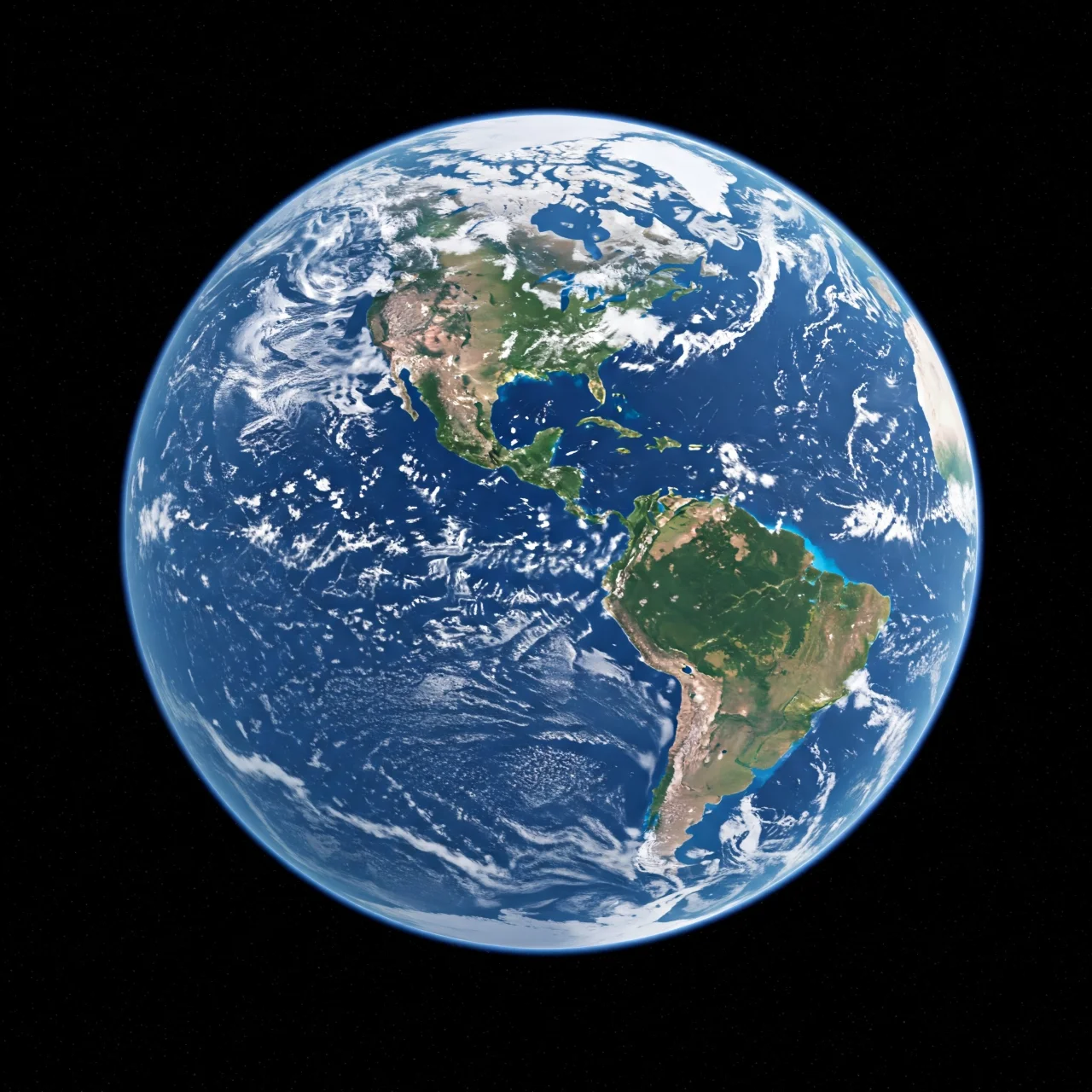
Earth's abundance of water is not just visually striking; it's fundamentally responsible for making our planet habitable. Water's unique properties, like its ability to moderate temperature, dissolve nutrients, and support life processes, created the conditions necessary for life to originate and thrive. Without water, Earth would likely be a barren, lifeless rock like Mars or Venus. Our 'blue marble' owes its vibrancy and life-sustaining capacity to this incredible molecule. [Source: [Link to NASA - Why is Earth Called the Blue Planet?](https://www.nasa.gov/centers-and-facilities/goddard/earth/blue-marble/)]
15. Water Has a High Surface Tension, Allowing Bugs to Walk on It
Have you ever seen insects effortlessly glide across the surface of a pond? This is due to water's high surface tension. Water molecules are strongly attracted to each other, creating a 'skin-like' surface. This tension is strong enough to support the weight of light insects, allowing them to walk on water. This property is also crucial for capillary action, enabling water to move upwards in plants. [Source: [Link to USGS Water Science School - Surface Tension and Water](https://www.usgs.gov/special-topics/water-science-school/science/surface-tension-and-water)]
16. Water Expands When It Freezes: An Unusual Property with Big Consequences
Most substances contract when they freeze, becoming denser. Water, however, is an exception. Water is densest at about 4 degrees Celsius and becomes less dense as it cools further towards freezing, and even less dense when it turns to ice. This is why ice floats. This seemingly simple property has profound implications, insulating bodies of water in winter, preventing them from freezing solid from the bottom up, and allowing aquatic life to survive. [Source: [Link to National Geographic - Density of Water](https://education.nationalgeographic.org/resource/density-water/)]
17. There's Water on the Moon and Mars (in Ice Form)
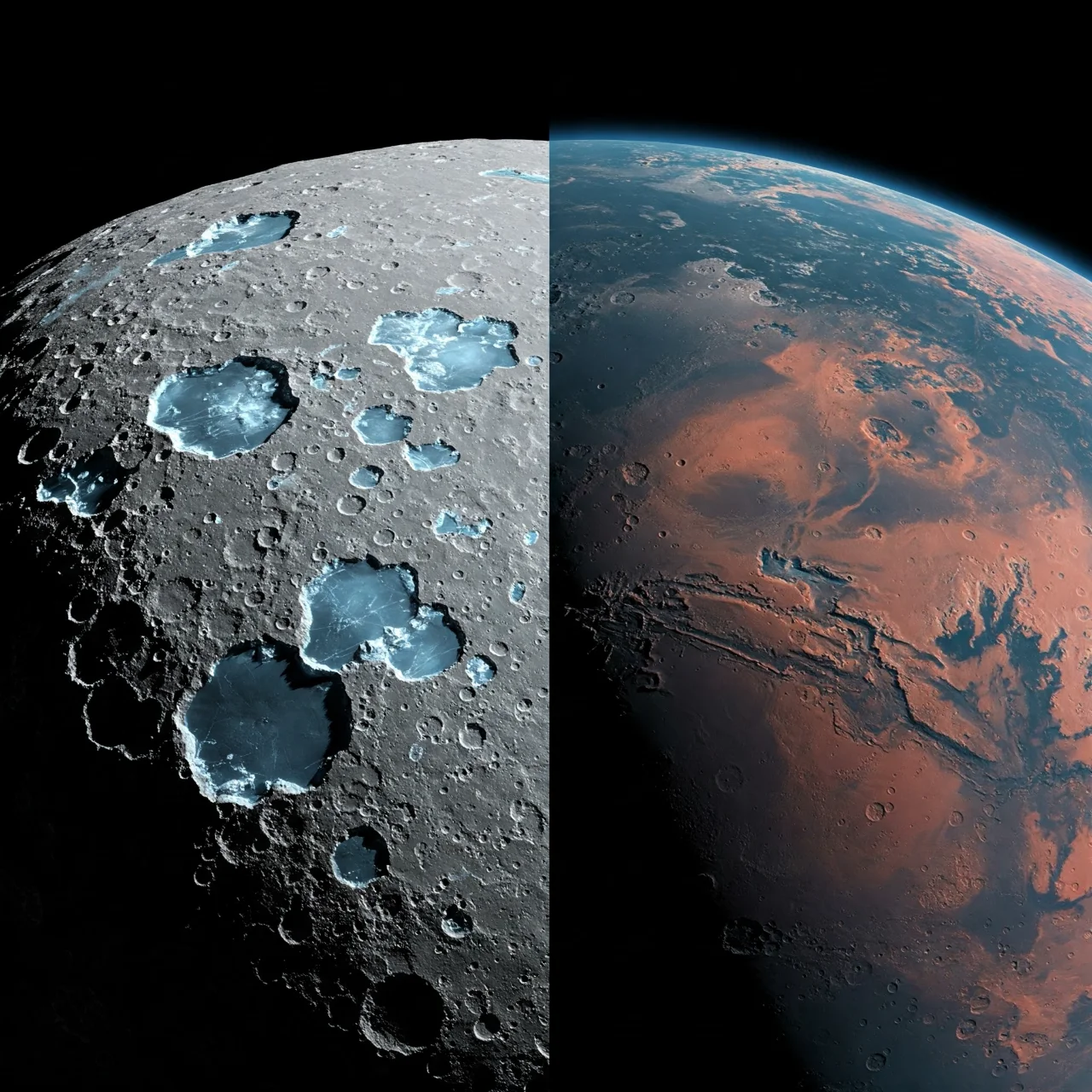
Earth isn't the only celestial body in our solar system with water. Scientists have found evidence of water ice in permanently shadowed craters on the Moon and substantial ice deposits on Mars, particularly at its poles and in subsurface permafrost. These discoveries fuel hopes for future lunar and Martian settlements and the potential for finding extraterrestrial life. [Source: [Link to NASA - Water on the Moon](https://www.nasa.gov/mission_pages/LRO/news/lro-moonwater.html) and [Link to NASA - Mars Water Ice](https://mars.nasa.gov/news/8956/mars-water-ice-pockets-could-support-life/)]
18. Water Can Be Superheated in a Microwave, Becoming Explosive
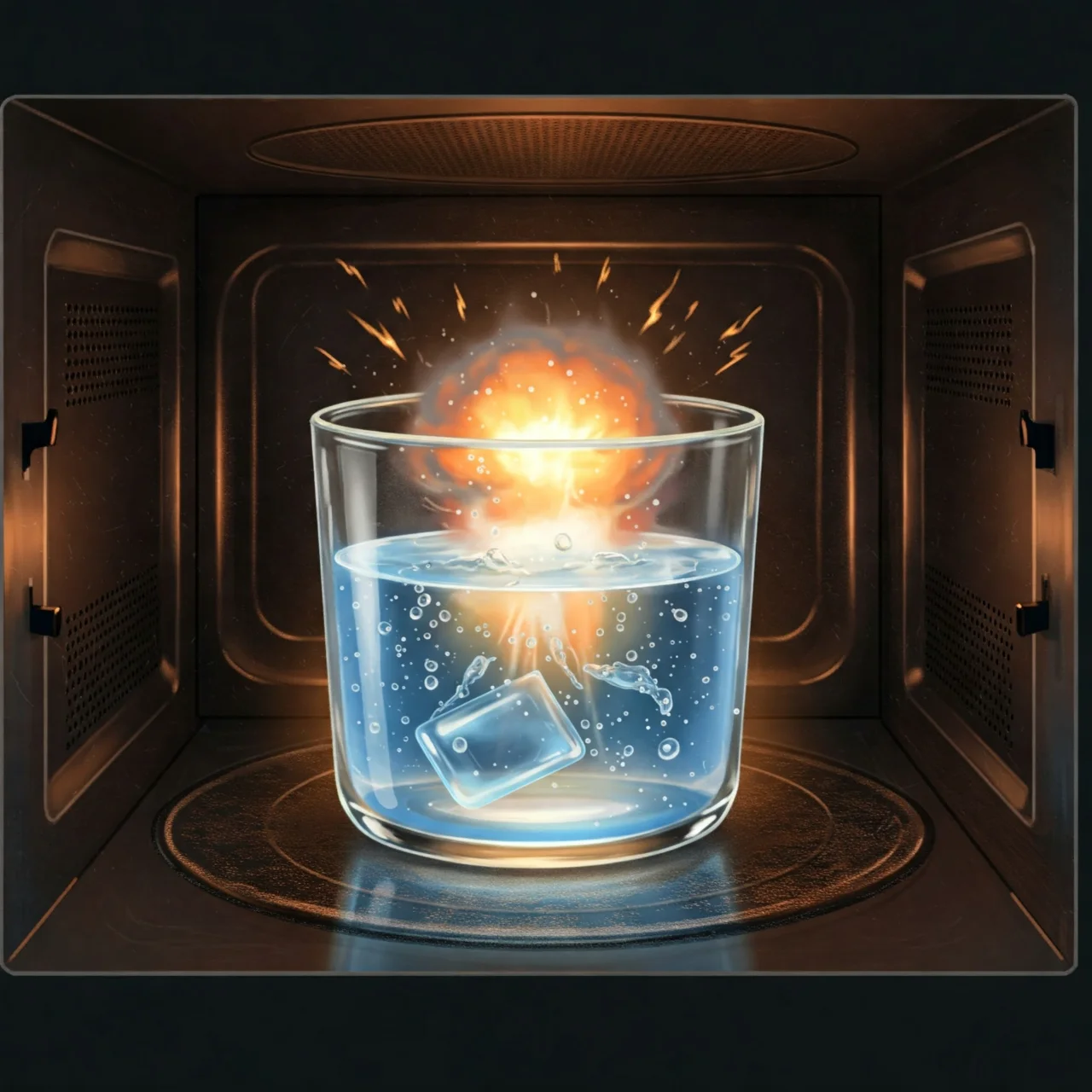
Microwaving water can sometimes lead to a dangerous phenomenon called 'superheating.' If heated in a very clean container, water can exceed its normal boiling point without actually boiling. It becomes unstable, and even slight disturbance, like adding a spoon or moving the container, can cause it to violently 'flash boil,' erupting hot water and steam. Always use caution when microwaving water and consider using a non-smooth container or adding a wooden stir stick to prevent superheating. [Source: [Link to Wired - Don't Superheat Water in the Microwave](https://www.wired.com/2015/01/fantastically-wrong-dont-superheat-water-microwave/)]
19. Water Memory: A Controversial and Unproven Claim
The concept of 'water memory' suggests that water can retain a 'memory' of substances previously dissolved in it, even after the original substance is no longer present. This idea, often associated with homeopathy, is highly controversial and lacks robust scientific evidence. Mainstream science generally dismisses water memory as pseudoscience, as there's no known mechanism for water to retain such long-term structural information. While intriguing, it remains firmly outside the realm of accepted scientific understanding. [Source: [Link to Science-Based Medicine - Water Memory – What’s the Harm?](https://sciencebasedmedicine.org/water-memory-whats-the-harm/)]
20. The Global Water Crisis is Real and Growing: Act Now!
While Earth seems water-abundant, access to clean, freshwater is a growing global crisis. Water scarcity, pollution, and unequal distribution are pressing issues affecting billions worldwide. Climate change is exacerbating these problems, leading to droughts, floods, and water-related conflicts. Conserving water in our daily lives, supporting sustainable water management practices, and advocating for policies that protect water resources are crucial steps we can all take to address this critical challenge and ensure water security for future generations. [Source: [Link to World Wildlife Fund - Water Scarcity](https://www.worldwildlife.org/threats/water-scarcity)]
Conclusion: Water – More Than Just H2O
From its bizarre behaviors to its life-sustaining properties, water is far more complex and fascinating than we often realize. These facts are just the tip of the iceberg in understanding the incredible nature of H2O. By appreciating these lesser-known aspects, we can develop a deeper respect for this precious resource and become more mindful of its conservation in a world facing increasing water challenges. Keep exploring, stay curious, and remember to value every drop!
Comments
Loading comments...